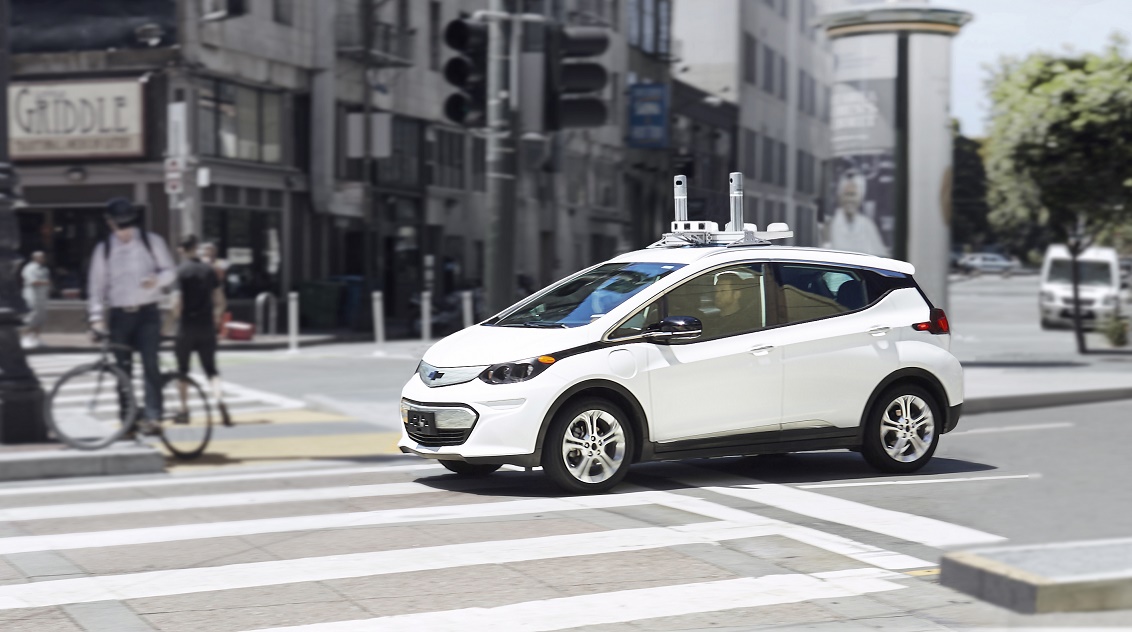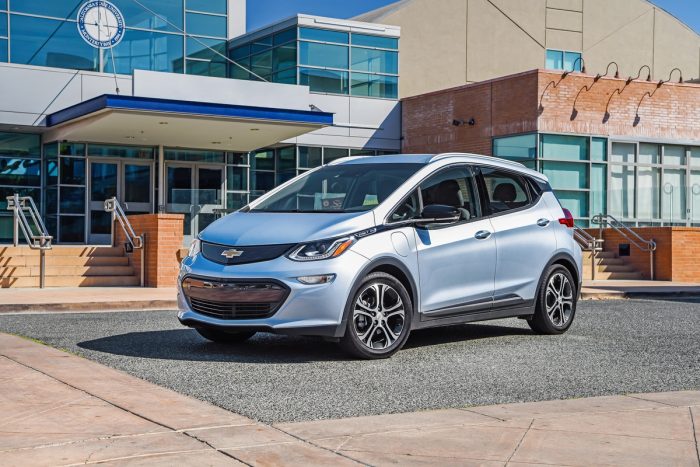Now Reading: GM’s planned self-driving Cruise AV car has no pedal
-
01
GM’s planned self-driving Cruise AV car has no pedal
GM’s planned self-driving Cruise AV car has no pedal

General Motors is looking for U.S. government approval for a fully autonomous car – one without a steering wheel, brake pedal or accelerator pedal – to go into the automaker’s first industrial ride-sharing fleet in 2019, executives stated.
For passengers who can not open doors, the Cruise AV – a rebranded version of GM’s Chevrolet Bolt EV – has even been designed to carry out that task. It will have other accommodations for hearing and visually impaired clients.
This will be among the first self-driving vehicles in industrial guest service and among the first to do away with manual controls for steering, brakes and throttle. What is the motorist’s seat in the Bolt EV will become the front left passenger seat in the Cruise AV, automaker stated.
Company President Dan Ammann informed press reporters GM had filed on Thursday for government approval to release the “first production-ready vehicle developed from the start without a guiding wheel, pedals or other unnecessary manual controls.”
GM is part of a growing crowd of automakers, technology business and tech startups looking to establish so-called robo-taxis over the next 3 years in North America, Europe and Asia. The majority of those companies have several partners.
On Friday, the United States National Highway Traffic Safety Administration (NHTSA) confirmed GM had petitioned for approval to run as much as 2,500 vehicles without steering wheels or human motorists. “Safety is the (Transportation) department’s top priority. The department will examine this petition and give it mindful consideration,” the agency stated.
Ford Motor stated on recently it will partner with delivery service Postmates Inc as the automaker begins testing ways to transport individuals, food and packages this spring in its self-driving vehicles, which are being developed by Ford’s Argo unit.
Stay Informed With the Latest & Most Important News
Previous Post
Next Post
-
 01Polestar Boss Says It’s Time To Outrun BMW M And Mercedes-AMG
01Polestar Boss Says It’s Time To Outrun BMW M And Mercedes-AMG -
 02Spy Shots: 2027 Mitsubishi Pajero Spotted in Testing Ahead of Possible U.S. Return
02Spy Shots: 2027 Mitsubishi Pajero Spotted in Testing Ahead of Possible U.S. Return -
 032026 Toyota Hilux EV: A Powerful Truck with Silent Torque
032026 Toyota Hilux EV: A Powerful Truck with Silent Torque -
![2027 Mercedes-Benz S-Class Debuts with V8 Engine [Photo Gallery]](https://speedlux.com/wp-content/uploads/2026/01/2027-Mercedes-Benz-S-Class-33-155x125.jpg) 042027 Mercedes-Benz S-Class Debuts with V8 Engine [Photo Gallery]
042027 Mercedes-Benz S-Class Debuts with V8 Engine [Photo Gallery] -
 052026 Corvette ZR1 Production Surges Past Expectations as Output Clears 1,000 Units
052026 Corvette ZR1 Production Surges Past Expectations as Output Clears 1,000 Units -
 06Spy Photos: VW ID. Polo GTI Goes Electric with 223 HP and 280 Miles of Range
06Spy Photos: VW ID. Polo GTI Goes Electric with 223 HP and 280 Miles of Range -
 07Hyundai Palisade’s Breakout Year Shows How Quickly the Market Can Turn
07Hyundai Palisade’s Breakout Year Shows How Quickly the Market Can Turn



![2027 Mercedes-Benz S-Class Debuts with V8 Engine [Photo Gallery]](https://speedlux.com/wp-content/uploads/2026/01/2027-Mercedes-Benz-S-Class-33-700x394.jpg)












































